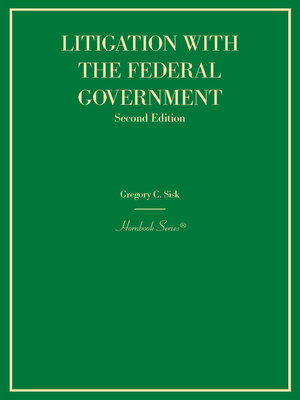
Sign up to save your library
With an OverDrive account, you can save your favorite libraries for at-a-glance information about availability. Find out more about OverDrive accounts.
Find this title in Libby, the library reading app by OverDrive.



Search for a digital library with this title
Title found at these libraries:
| Library Name | Distance |
|---|---|
| Loading... |
Any lawyer who practices regularly in the federal courts will encounter the federal government as a party and will learn, as the Supreme Court warned many decades ago, that the United States is not "just another private litigant." The federal government is a party, as plaintiff or defendant, to about one-fifth of all civil cases in the federal courts. In civil litigation, the federal government (and its employees) may be protected by sovereign or official immunities, impose specific administrative requirements, assert special defenses, and enjoy certain exceptions from liability. Federal government cases often involve issues central to the lives of many people, such as claims involving personal injury or property damage under the Federal Tort Claims Act; monetary benefits under such statutes as the Social Security Act and the Veteran Benefits Act; civilian and employee military claims under the Civil Service Reform Act and the Tucker Act; governmental expropriation of property under the Tucker Act; and contractual obligations under the Contract Disputes Act; Bivens constitutional claims against federal officers; and claims for attorney's fees under such unique statutes as the Equal Access to Justice Act.







